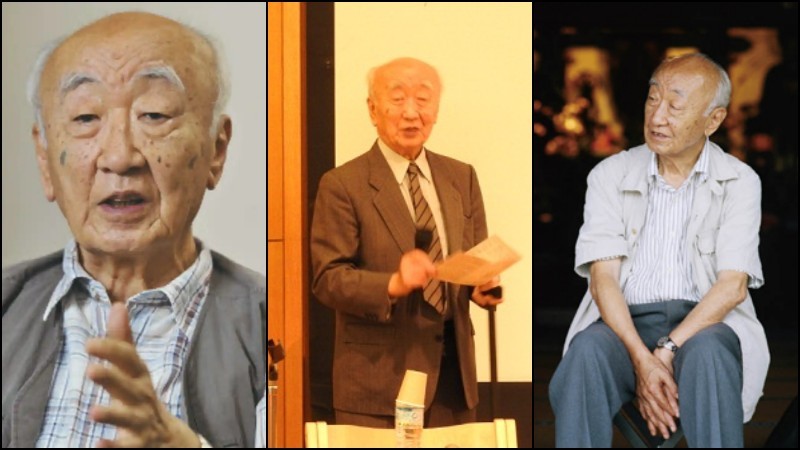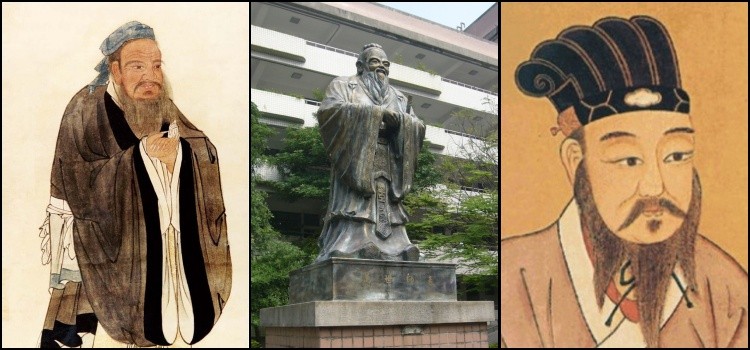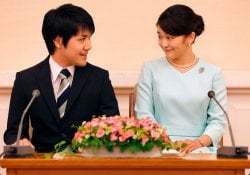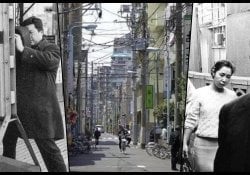In Japan, Psychology (心理学) is an area of study that is still heavily influenced by Eastern religion and philosophy. Because it is a country in which the population is not so much in the habit of attending traditional and established psychotherapies in the West (such as Psychoanalysis, Cognitive Therapy, ACP, among others), the Japanese end up dealing with their frustrations and psychic problems using other tools.
In this article, we will see some important Japanese Psychologists (and Psychiatrists) in the field and who have some international prominence. In addition, we will also see how Japanese Psychology was influenced by Chinese Philosophy, zen-buddhism and Logotherapy.
Índice de Conteúdo
Kimura Bin: Phenomenology and Schizophrenia
Kimura Bin (1931–) is a very popular Japanese psychiatry within the psychological and philosophical approach known as Phenomenology. His works had great influence all over the world. In Brazil, despite being a well-known thinker among phenomenologists, his work was not translated in large quantities, given the difficulty of translating Japanese terms (many even untranslatable) or adapting texts faithfully.
Within his work, it is possible to identify numerous influences coming from the traditional Kyoto School. The concept of 間 (あいだ; which means between, interval) is a very interesting concept developed by Kimura, which says that space and the person are inserted in an interval, or, in other words, in an experience between two people.
Thus, space and time bridge the gap and contribute to continuing or discontinuing an action in the real world. That is, for Kimura, the “aida” would be the interval in which two people meet and in which reflective attention is directed towards a certain object.
In schizophrenia, for example, there would be a disturbance in the “aida”, or, better said, in the subject's relationship with time (the future), space and other people.

Ichiro Kishimi: The Adlerian Psychology
Ichiro Kishimi is a Kyoto-born Japanese thinker, philosopher and psychologist. His thinking was based on the psychology of Alfred Adler (1870-1937) and in Brazil some of his books were translated and published. One of the author's most recent works was translated into Portuguese with the title of “The courage to not please”, launched in Brazil in 2013, in partnership with Fumitake Koga.
In “The courage to not please” it is possible to see a dialogue between a philosopher and a student who wants to have a better life. During the dialogue, we are presented with the concepts of “Inferiority Complex” and “Superiority Complex” (derived from Adlerian Individual Psychology). The Inferiority Complex would be the tendency in men to self-depreciate and feel inferior to an individual or a social group.
In some anime it is possible to see this theme being approached “unintentionally” (or wanting, you never know) by the authors. In Inuyasha, a Youkai feels inferior for not having much hair (balds are identified). Already in Fullmetal Alchemist, we see the protagonist Edward Elric being called short by everyone and getting extremely angry about this situation.
The influence of Zen Buddhism, Chinese Philosophy and Logotherapy
The way of understanding the mind (気) in Japan tends to be filled with spirituality, religiosity, philosophy and superstitions. Zen-Buddhism has considerably influenced the branches of Psychology and Medicine in Japan, given that Japanese culture has long received spiritual and religious influences rooted in all sectors of society, including government.
Buddhist, Shinto, Confucian and doctrinal practices of the empire have always emphasized the importance of ideas such as: balance, cooperation, sacrifice, appreciation of nature, authority, proper behavior, detachment, compassion, transcendence, meditation, harmony with beings and the world. , loyalty and work.
Confucius (孔子) exerted a strong influence on Japanese thought during the Tokugawa Shogunate and to this day it is still present, often implicitly, in the traditional ideals and customs of the Japanese family and in national politics.

More recently (21st century) we have seen a growing demand in Japanese youth for the search for meaning in life. O Japanese concept of Ikigai (生き甲斐) is a concept related to the purpose of life that all of us must have in order to continue living.
Logotherapy developed by Viktor Frankl talks about the theme of Ikigai (いきがい) and is a philosophical-psychological approach that has some popularity within Japan, see the gigantic amount of franklian works translated into the Japanese language.
Below you can see the cover of one of Viktor Frankl's books translated in Japan:
On the cover is written: 人生の意味と神。
This can be translated as "God and the meaning of life".
- Meaning, sense;
- 神 (かみ) = God;
- Life
- Particle と = Usually translated as "And": connects two nouns;
- Particle の = Connects two nouns attributing characteristics or belonging. It usually translates as “do, da, de”;
To complement this article, it is possible that I will elaborate a part 2, but for now we are left with a motivational phrase:
“Nothing provides a better ability to overcome and resist problems and difficulties in general than the awareness of having a mission to fulfill in life.”
Honne
The article is still halfway through, but we recommend also reading:
Yujiro Motora: The Pioneer
One of the pioneers of Japanese Psychology was Yujiro Motora (元良勇次郎) who is considered the first prominent Japanese psychologist. Born in Hyogo, he died prematurely at just 54 years old, a victim of Erysipelas.
Motora (1858 – 1912) contributed mainly in the field of Experimental Psychology, having done research in the field with eminent North American psychologists, such as Stanley Hall.
Yujiro Motora received numerous academic and governmental awards and honors and his death was reported as a great loss to national science.
Hayao Kawai: The Founder of Japanese Analytical Psychology
Hayao Kawai (河合隼雄) was a Japanese psychologist with a Jungian background. Considered the main person responsible for the dissemination of Jungian theory in the country, he died in 2007 and wrote several books, many of which were translated into Portuguese.
One of his books was published in Brazil as: “The Japanese Psyche: Great Themes of Japanese Fairy Tales”. Below we can see a lecture by Hayao on the problems of mind and people in modernity: (video is in Japanese)
Honne (本音) and Tatemae (建前) and the Psychology of Group Harmony
In a hierarchical society that values peace and social harmony, it is essential that individuals seek harmony in their daily lives. Due to cultural and historical factors, the Japanese people tend not to express political opinions or opinions related to controversial issues as a result of this tendency to always seek the harmony of the collectivity.
In this sense, we have two words that describe exactly this Japanese "way of being". Honne (本音) refers to what the subject actually thinks but does not usually emit.
Tatemae (建前) already refers to the act of "keeping up appearances" or omitting one's opinions (especially on "thorny" topics) in order to keep things "smooth".
If you want to know more about Honne and Tatamae, we recommend reading our article by clicking here.

Vocabulary for Psychology in Japanese
To end the article, we will leave a list of Japanese words related to psychology:
- 気 (き) = Mind, spirit, soul;
- Psychology
- Psychologist;
- 精神 (せいしん) = Spirit, Soul, Mind;
- 哲学 (てつがく) = Philosophy;
- Zen
- Budismo;
- 神道 (しんとう) = Shintoism;
- 神 (かみ) = God;
- Life
- Meaning, sense;
- Viktor Frankl
- Ikigai;
- 孔子 (こうし) = Confucius;
Article published by: João Victor Gadelha







